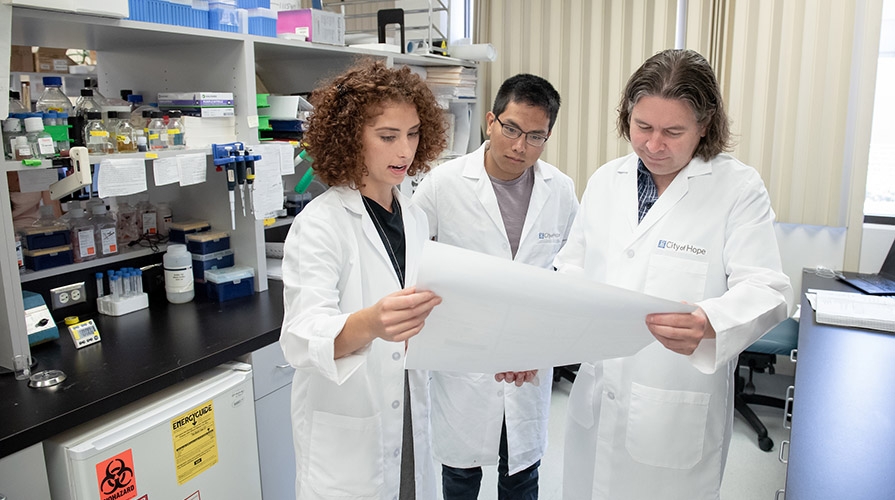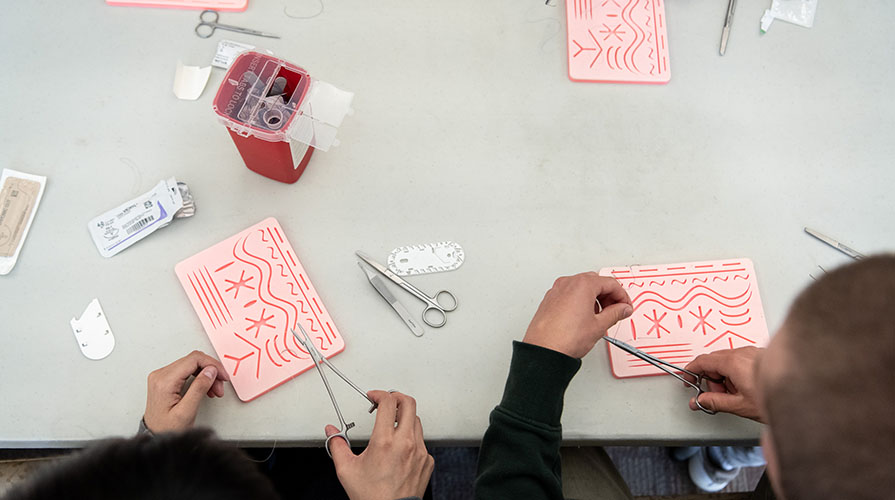Genetic Counseling
Quick Facts: Genetic counselors assess individual or family risk for a variety of inherited conditions, such as genetic disorders and birth defects. They provide information and support to other healthcare providers, or to individuals and families concerned with the risk of inherited conditions. Median pay in 2023 was $88,000 per year. Master’s degree in genetic counseling or genetics is typically required.
Nursing (BSN, MSN, DNP)
Quick Facts: Registered nurses (RNs) provide and coordinate patient care, educate patients and the public about various health conditions, and provide advice and emotional support to patients and their families. Median pay in 2023 was $89,300 per year. A Bachelor of Science in Nursing (BSN) degree is required.
Quick Facts: Nurse Anesthetists, Nurse Midwives and Nurse Practitioners, also referred to as advanced practice registered nurses (APRNs), coordinate patient care and may provide primary and specialty healthcare. The scope of practice varies from state to state. Median pay in 2023 was $127,000 per year. A Master of Science in Nursing (MSN) degree is required. A Doctor of Nursing Practice (DNP) degree may be required.
Occupational Therapy (MSOT, OTD)
Quick facts: Occupational therapists treat patients of all ages who have injuries, illnesses, or disabilities through the therapeutic use of everyday activities. Median pay in 2022 was $93,280 per year. A Master of Science in Occupational Therapy (MSOT) or Doctor of Occupational Therapy (OTD) degree is required.
Optometry (OD)
Quick facts: Optometrists diagnose and treat visual problems and manage diseases, injuries and other disorders of the eyes. Median pay in 2022 was $125,590 per year. A Doctor of Optometry (OD) degree, as well as a state license, is required. Some optometrists complete a one-year residency program to get advanced clinical training.
Pharmacy (PharmD)
Quick facts: Pharmacists dispense prescription medications to patients and offer expertise in the safe use of prescriptions. Median salary in 2023 was $132,750. A Doctor of Pharmacy (PharmD) degree is required. Pharmacists seeking an advanced position, such as a clinical pharmacy or research job, may need to complete a one- to two-year residency. Pharmacists who choose to complete the two-year residency receive additional training in a specialty area such as internal medicine or geriatric care.
Physical Therapy (DPT)
Quick facts: Physical therapists help injured or ill people improve specific body movements and manage pain. Median salary in 2022 was $97,720. A Doctor of Physical Therapy (DPT) degree is required. Physical therapists may apply to a clinical residency program after graduation. Residencies typically last about a year and provide additional training and experience in specialty areas of care.
Physician Assistant
Quick facts: Physician assistants, also known as PAs, practice medicine on teams with physicians, surgeons and other healthcare workers. They examine, diagnose and treat patients. Their specific duties and the extent to which they must be supervised by physicians or surgeons differ from state to state. Median salary in 2022 was $120,000 per year. A master’s degree, as well as a state license, is required.
Speech-Language Pathology
Quick facts: Speech-language pathologists (sometimes called speech therapists) assess, diagnose, treat, and help to prevent communication and swallowing disorders in children and adults. Speech, language and swallowing disorders result from a variety of causes, such as a stroke, brain injury, hearing loss, developmental delay, Parkinson’s disease, a cleft palate, or autism. Median pay in 2022 was $84,140 per year. Speech-language pathologists typically need at least a master’s degree, and most states require a license. Requirements vary by state.
Veterinary Medicine (DVM)
Quick facts: Veterinarians care for the health of animals and work to protect public health. They diagnose, treat, and research medical conditions and diseases of pets, livestock and other animals. Median salary in 2022 was $103,260 per year. A Doctor of Veterinary Medicine (DVM) degree, as well as a state license, is required.


